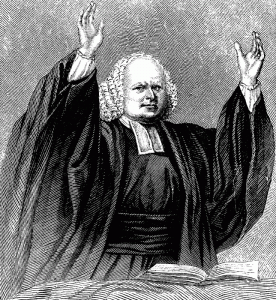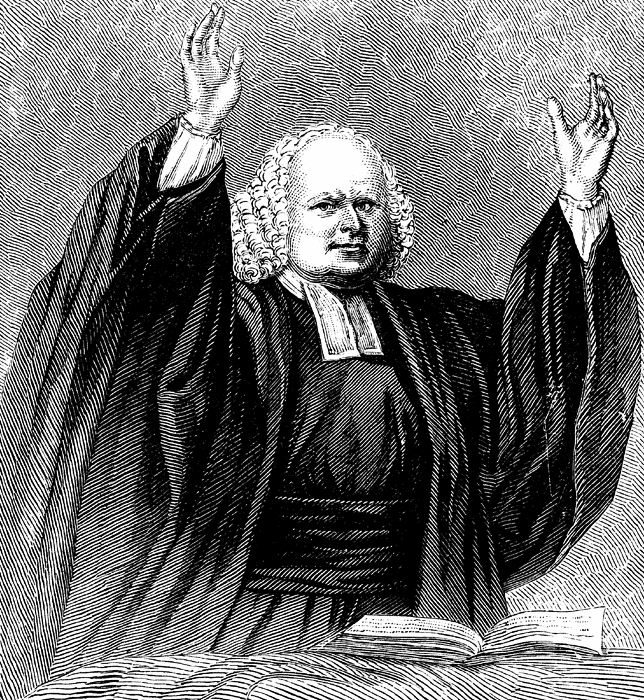
Election Day of the 18th and early 19th century was very different than it is today. In Colonial New England, Election Day was a holiday, and there would be grand pageantry in cities and towns all across the colony. The day would begin with cannon fire and military exercises by the local militia, and then the politicians would process through the streets to the church. Once gathered in the church a service would be held and a sermon preached.
Standing in the center of most colonial towns stood the meeting house that on Sunday functioned as a gathering spot for the religious community but also served as a gathering place for community meetings and other important events in the life of the colony. The white clapboard building stood in the center of the town, with its tall spire, to remind the inhabitants of the essential nature of religion in the community.
It was the Calvinist belief that all human activity fell under the jurisdiction of God’s word so gathering at the church on special occasions such as anniversaries, days of thanksgiving, days of fast, as well as on Election Day would not have been unusual. The sermon was essential to people’s lives and was the central focus of the Congregational worship service. It is estimated that the average person would have listened to 7,000 sermons in their lifetime that would amount to about 15,000 hours.
The sermon in Colonial New England was not only preached on Sunday but also on special days such as anniversaries, days of thanksgiving, fast days, and of course election day. Preachers would not have used the pulpit on Sunday for political purposes, but that was certainly different on Election Day. In true Calvinist thought, New England Congregationalist would have preached sermons to inform and convince while their Church of England Counterparts would have preached sermons that would please and inspire.
The typical Election Day sermon would follow a set pattern and focus on two important elements.
- The civil government is founded on an agreement between God and the citizens governed to establish political systems that would provide for the common good. The idea being that when humanity and God acted as one society was at its best. It was also understood that the government had certain responsibilities toward the people and the people had certain responsibilities toward the government.
- A reminded that the citizens had an obligation to follow those they had elected, whether they voted for them or not and reminded to those elected that they made a promise, by their election, to act for the good of all the citizens they governed. As long at those elected continued to act in “the proper character” those ruled were obligated to obey them and submit to their rule.
Those listening would be reminded of the duty to pray for and to submit to the authority of those chosen to govern us so that, as Paul wrote to Timothy, “so that we may lead a quiet and peaceable life in all godliness and dignity.” (1 Timothy 2:2.)
In the end it is important to remember that these sermons were not about endorsing one candidate over another, although I am sure that happened, but these sermons were preached in the presence of the government as a reminder to them, and to the governed, about their responsibilities as citizens and to act for the betterment of all of the society and by doing so we would all be able to live godly lives. The sermon was designed to remind the citizen of the importance of their vote and that their responsibility should not be taken lightly something we all need to be reminded.

